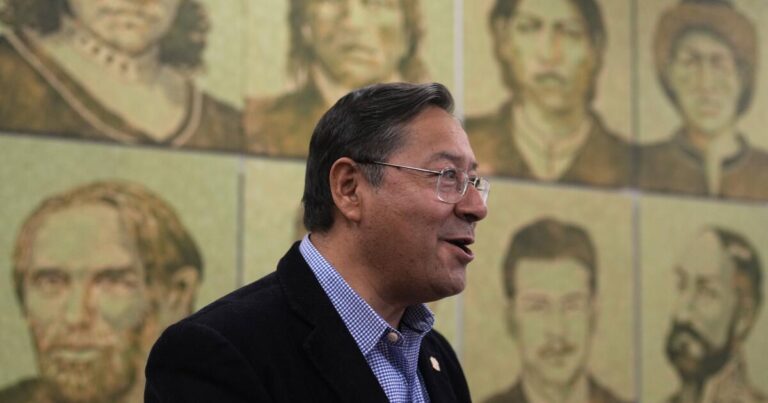Former President Evo Morales on Sunday accused his political ally-turned-rival Luis Arce of misleading Bolivians by staging a “suicide coup” last week to gain voter support, further worsening already tense relations between the two countries.
Morales was initially one of the country’s most vocal voices in alleging that about 200 military men who marched in armored vehicles to the Bolivian government palace on Wednesday were plotting a “coup”, and he called for “the arrest and trial of all those involved in this unrest”.
But on Sunday, Morales joined others in alleging that President Arce himself orchestrated the incident to gain sympathy from Bolivians at a time when his own popularity is extremely low.
“President Arce has disregarded the truth, he has deceived us and he has lied not only to the Bolivian people but to the whole world,” Morales said in a local radio broadcast on Sunday. In a post on X, Morales also called for an independent investigation into the military action.
President Morales has supported the prosecution of former General Juan José Zúñiga, who is accused of leading the coup attempt, saying Zúñiga had told colleagues and family about the plan in advance and told authorities during his detention that President Arce had “betrayed” him.
“The president told me: ‘The situation is very bad, very critical. I need to prepare something to increase my popularity,'” Zúñiga quoted Arce as saying.
This theory was quickly adopted by President Arce’s political opponents, who called it an “auto-coup.”
“One day the truth will come out,” a handcuffed Zuniga told reporters on his way to prison on Saturday.
Morales’ comments were repeated later in the night in neighbouring Argentina, where the government of right-wing President Javier Milley, citing intelligence reports, said Wednesday’s developments were “not very credible” and declared the coup attempt “fraudulent.”
Arce’s administration responded on Monday, saying it “strongly rejects these unfriendly and reckless rhetoric.”
It’s a major shift since Wednesday, when leaders from across the region showed solidarity with President Arce.
Minister of the Presidency Maria Nela Prada hit back at Morales on state television on Sunday, warning him not to “become a puppet, a puppet or a tool of imperialism that wants to plunder our country.” She said the “fascist right” wanted to “distort history.”
“What I further condemn is that people like Evo Morales, who call themselves leftists, are ideologically vacillating about what is a coup and what is a failed coup in our country,” she said.
While Morales still wields great influence in Bolivia, particularly among coca growers and their unions, Arce faces simmering discontent as the country reels from an economic crisis.
Morales, once a friend of President Arce, resigned as president in 2019 amid chaos after running for an unconstitutional third term and then going into exile, but he claims the incident was a coup.
The affair led to a controversy-plagued interim presidency for conservative Jeanine Áñez, who is currently serving a 10-year prison sentence for illegally taking over the presidency after Morales resigned.
In Bolivia’s 2020 election, Morales supported Arce as the candidate of the Movement for Socialism, known by its Spanish acronym MAS.
But relations between the two deteriorated after Morales returned from exile and announced plans to run against Arce as the MAS candidate in the 2025 elections. The rivalry between the two has grown increasingly intense as Morales’ allies have blocked much of Arce’s legislative agenda in Congress.
“We have been attacked politically,” Arce said in an interview with The Associated Press on Friday, “but we have not fought back.”
The dispute has angered many Bolivians, and President Morales’ comments on Sunday did not appear to help matters.
Morales said on local radio show Causachun Coca that he felt the incident had tarnished the image of Bolivia and its armed forces, and apologized for expressing solidarity with Arce.
Janetski is a contributor to The Associated Press.

